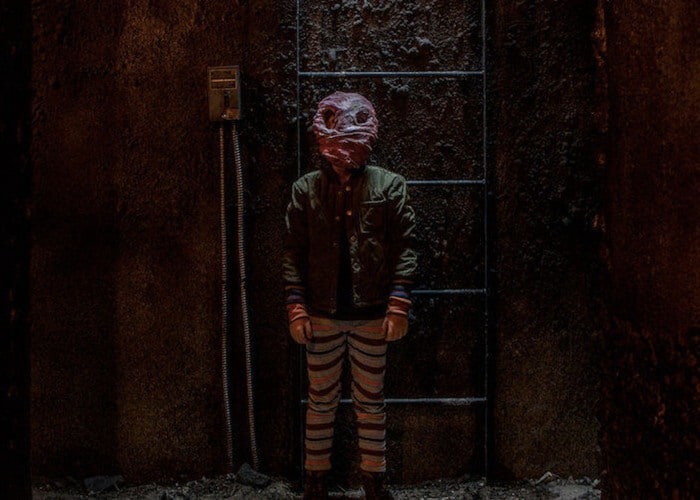
Somewhere along the way the movie business decided that marketing was an integral part of the process requiring upwards of half a film’s budget in an attempt to get butts into seats. Original content on streaming services don’t have that same kind of overhead or seat requirements meaning marketing can be kept to a minimum in advance of a film’s release. The ideal, though, that only these services are capable of, is to simply release films onto unsuspecting audiences and *then* push viewers towards these new arrivals. Ideal in theory anyway, as Netflix has now dropped a second surprise horror movie — after last year’s disappointing The Cloverfield Paradox — as a treat for viewers, but the result is once again less interesting than the delivery method.
Marina (Daniella Pineda) was just a child when she was sent away to an institution for stabbing a classmate. She committed the violent crime at the “request” of Mercy Black — a ghostly figure promising to take away the sadness of those who offer up sacrifices to her — but is now returning home fifteen years later, cured of the delusion and hopeful about getting her life back on track. Marina’s creation has lived on in her absence becoming a viral tale shared among new generations, and her return leads to trouble on two fronts. Locals are only too happy to torment her for those past crimes, and Mercy herself wants to claim another soul. Or does she?
Writer/director Owen Egerton (Blood Fest, 2018) leaves behind the overt humor of his last film to dig into a nightmare with at least one foot in real world tragedy. Mercy Black‘s DNA stems from internet phenomenons like the Slender Man and other “creepypasta” creations designed to terrify youths looking for just that and then take them viral. Some kids take them too far, though, resulting in violent assaults committed in the name of these fictional monsters, and as Egerton knows that a belief in something like this is every bit as important as its actual existence it’s there where the film finds its story.
Egerton wisely keeps Mercy’s existence floating in that realm between fact and fiction throughout much of the film, and the story instead focuses on Marina’s troubles and increasingly tenuous grasp on reality. Is her imagination getting the best of her, or has Mercy actually returned? Or, as some come to fear, has Marina herself taken on the role of Mercy? The questions and uncertainty are the film’s greatest strength thanks in part to Pineda’s performance. She makes Marina’s pain and self-doubt tangible leaving viewers torn between feeling for her and fearing her.
She’s quite good, but eventually even she gets overshadowed by Egerton’s (or Blumhouse’s?) desire to cram in generic horror beats at every opportunity from cheap setups to cheaper stingers. Marina’s staying with her sister Alice (Elle LaMont) and nephew Bryce (Miles Emmons), and while the former is given too little to do the latter is used mercilessly for ineffective stabs at scares. Dream sequences, disturbances, and more pile on, but none of them manage to actually unsettle and instead feel more like someone ticking off boxes.
Mercy’s physical appearance also becomes an issue. It looks and feels homemade for a reason as she’s argued as a creation of Marina and her friends, but while it works early on in a Babadook kind of way later attempts at scares stumble as we glimpse too much of this slapdash “monster.” Alice’s boyfriend Will (Austin Amelio) is a self-proclaimed true crime buff who takes a particular interest in Marina’s story, and between him and Bryce there are some interesting ideas about belief teased towards viewers, but rather than follow those threads the film simply resorts back to cheap jump scares more often than not.
There’s an intriguing and disturbing story at the heart of Mercy Black, but the film never seems to trust itself enough to pursue those threads. Belief is a powerful force, whether for good or evil, but initial ideas on the subject seem to fall away in favor of horror movie expectations. That said, the third act tosses in a couple of surprises — the film’s strongest elements outside of Pineda — but even at under ninety minutes, they’re too little too late.
Related Topics: Daniella Pineda, Horror, Mercy Black, Netflix, Owen Egerton
